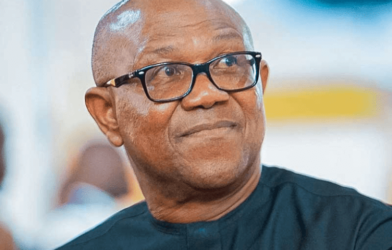170
…By Paul Ejime
The Commission of the ECOWAS Community of West African States (ECOWAS) has congratulated Senator Bola Tinubu, who was declared Nigeria’s President-elect on Wednesday by the electoral Commission following last Saturday’s contentious elections in Africa’s most populous nation.
“On behalf of the Authority of ECOWAS Heads of Government and Authority and the entire ECOWAS Leadership,” the ECOWAS Commission said in a statement: “we wish to convey our heartfelt congratulations to His Excellency Senator Bola Ahmed Tinubu on his election as President of the Federal Republic of Nigeria.”
The statement also “appeals to all the stakeholders to promote peace and to use constitutional means to address any grievances they may have.”
Announcing results of the polls in Abuja, the nation’s capital, Prof Mahmood Yakubu, chair of the Independent National Electoral Commission (INEC) said Tinubu, a former governor of Lagos State and candidate of the ruling All Progressive Congress (APC), received 8.7 million votes or 37% of the estimated 25 votes cast.
His closest rival Atiku Abubakar, a former Vice President and candidate of the main opposition Peoples Democratic Party (PDP) got 6.98 million.
Peter Obi, a former governor of Anambra State in Eastern Nigeria and candidate of the Labour Party (LP), made a surprise showing with 6.1 million votes to place third.
Speaking after being declared winner, Tinubu called on fellow contestants to join him to work for Nigeria’s unity.
The main opposition parties PDP and LP have rejected results of the vote, alleging frauds and called for cancellation of the results.
They have also called for the resignation of the INEC leadership, accusing the Commission of failing to upload results of the elections at the polling units, which they consider a violation of the electoral code.
The delay raised tension in the politically volatile country, where citizens are also battling economic hardships, high levels of poverty, unemployment especially among the youths, and insecurity, characterised by kidnapping for ransom, herders-farmers conflict and attacks by the Islamic extremist armed group Boko Haram coupled with ethnic and religious divide.
Nigeria’s former President Olusegun Obasanjo is among important political figures that have joined the opposition parties in calling for the poll cancellation. In his statement, he called on outgoing President Mahammadu Buhari to avoid “setting the country on fire.”
The tightly fought but largely peaceful electoral contest is the 7th round of polls since Nigeria returned to civilian rule in 1999 after prolonged spells of military dictatorships.
There were logistical problems, including late commencement of voting, as well as vandalism and snatching of election materials, alleged rigging, voter intimidation and suppression.
While the turn-out had initially appeared impressive, the results announced by the electoral commission showed that only about 25 million out of the 93 million registered voters managed to cast their ballots.
Election experts attribute this development to voter apathy, insecurity, and largely, the effectiveness of technology introduced by INEC for verification and accreditation of voters.
But the same technology apparently resulted in delay in the electronic transfer or uploading of the results, which the electoral Commission blamed on “technical glitches.”
The official declaration of the presidential and parliamentary election results is expected to be followed by legal challenges by the opposition parties.
Elections for state governors and members of the State Houses of Assembly are fixed for 11 March nationwide.
The next administration after President Buhari’s eight-year regime in May, faces the Herculean task of uniting a deeply divided Nigeria, which has failed to realise its full potential since independence from Britain in 1960, due largely to poor leadership, corruption and resource mismanagement












Comments are closed